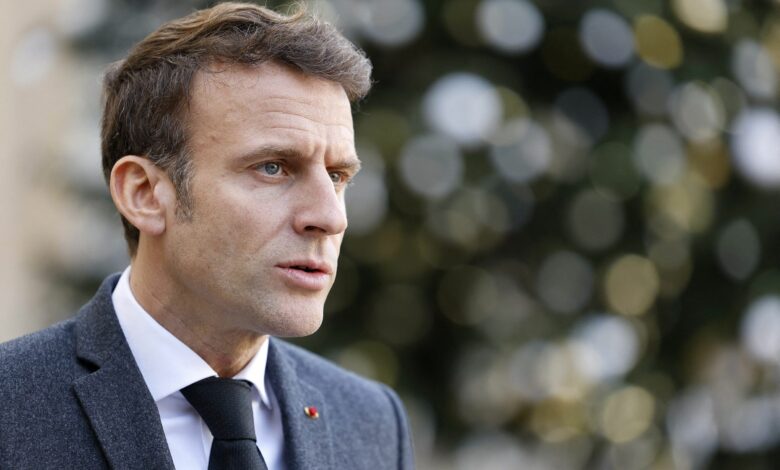
French President Emmanuel Macron’s government will attempt to revive his economic reform drive and score a major political victory this week with a launch of the pension system’s overhaul in the face of vehement trade union opposition.
Prime Minister Elisabeth Borne is to detail on Tuesday plans to make the French work longer, most likely by raising the retirement age to 64 or 65 from 62 currently.
With one of the lowest retirement ages in the industrialized world, France also spends more than most other countries on pensions at nearly 14% of economic output, according to the Organisation for Economic Cooperation and Development.
The reform’s passage through parliament will not be easy. Macron lacks a working majority and will need to win over several dozen conservative lawmakers or use his constitutional powers to bypass the assembly, which would enrage the opposition and further aggravate the public.
Pension reform in France, where the right to retire on a full pension at 62 is deeply cherished, is always a highly sensitive issue and even more so now with social discontent mounting over the surging cost of living.
The government says reform is necessary to keep the pension system’s finances out of the red in the coming years, but a success could also be a political game-changer for Macron after he lost control of parliament last year.
“The aim is to balance the accounts without raising taxes or cutting pensions. Various options are on the table, but all include raising the retirement age,” government spokesman Olivier Veran told journalists.

Strike threat
Macron had to put the pension reform on ice in 2020 as the government rushed to contain the Covid outbreak and save the economy.
Now, he can count on tougher union opposition than in 2020 with even the reform-minded CFDT – France’s biggest union – threatening to protest, which it abstained from three years ago despite misgivings about the reform at the time.
“If the retirement age is pushed back to 65 or 64, the CFDT will do what we’ve said we’ll do, we will resist this reform by calling on workers to mobilise,” CFDT head Laurent Berger said last week.
Calls for walk-outs could find more traction this time with frustrations already running high over the loss of purchasing power during the current inflation crisis.
Desperate to keep social tensions in check, the government has spent tens of billions of euros to soften the blow of record power and gas prices, which has kept French inflation lower than in most other EU countries.
Although recent strike action has been limited to specific sectors, such as refineries and airlines, outrage over pension reform could easily spark far broader protests.
The yellow vest movement, largely dormant since violent anti-Macron street protests in 2018 and 2019, held a march through central Paris on Saturday, though turnout was low.
Polls show pension reform is unpopular. However, the government nonetheless believes that the general public mood is more inclined towards resignation than anger compared with 2018, Veran, the government spokesman, said.
“We’re not reforming pensions to be popular but to be responsible. We’ll go all the way because it’s the only way our social model can survive,” he added.




